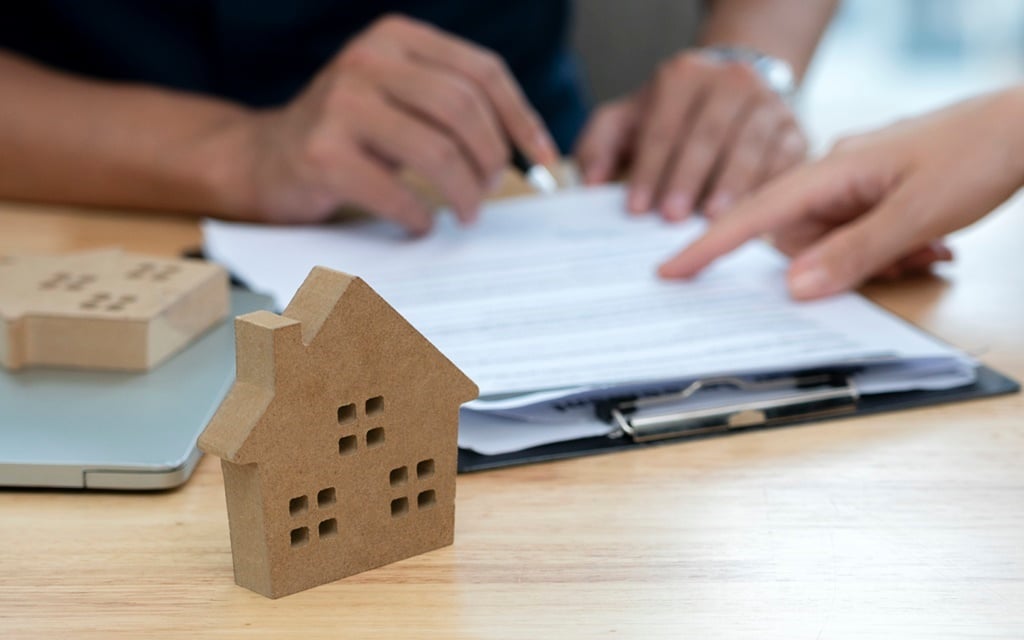
It is true that for most people, rent is one of the biggest monthly expenses. Should that money rather be used to purchase property instead of ‘paying someone else’s bond’?
The choice between buying or renting a place to live is an important one – especially to those planning on moving into their first abode. Let’s look at an example of two young professional couples who are considering the option of buying their first property.
Assuming these couples work in one of the cities around the country, they are likely to want to live in the bustle of Green Point in Cape Town, Umhlanga Rocks in Durban, Bryanston in Johannesburg or Summerstrand in Port Elizabeth.
Now, each of these places can cater to the elites, but the average no-frills rental price of approximately R13 000 per month for a two- bedroom apartment is possible.
An example of property prices in these areas would differ quite dramatically per square metre, but for this example we will take a very conservative approach of R2.2m for a two-bedroom property in a favoured postal code.
Couple A has decided to buy a property for R2.2m in Cape Town as they figure they would like to own rather than rent.
After negotiating a preferred interest rate with the bank on a 100% mortgage for prime minus 0.25 percentage points (6.75% per year as of August 2020), they are looking at a 20-year bond with monthly repayments of R16 842 – after paying bond registration and transfer duties of approximately R143 366.
The couple is then subject to monthly rates, levies and municipal taxes to a conservative amount of R2 500. On top of these expenses are the living costs as per any normal household budget and unplanned expenses of owning a property. In summary, there is an initial cost of R143 366 (bond, utilities and transfer costs) and a monthly cost of R19 342 before groceries, entertainment and other expenses.
The repayment of R16 842 per month will be servicing bank fees, interest and the capital repayment towards the property.
The first payment pays R12 408 towards the interest on the loan – which demonstrates that although the couple will own the property after 20 years, over R1.8m of interest payments will be made to the bank over this period – which equates to 45% of the total payment.
On the other hand, Couple B looked around and decided they were not committed to buying and would rather rent a property. They found a suitable place for them at R13 000 per month which included water, rates and taxes. They were asked to pay a deposit of R26 000 which was refundable with interest, granted they did not damage the rental property.
Compared with Couple A (who bought the property), Couple B will have R76 104 more in disposable income per year (R6 342 per month) on top of the initial amount of R143 366. Remember that the deposit is held on investment and is refundable to Couple B.
This could be invested into creating additional income or capital growth towards future ambitions or even to buy a property with a large deposit. The opportunity cost of buying your first property is therefore R219 470 in the first year and an extra R76 104 per year thereafter.
However, Couple B will have no asset at the end of 20 years and will have to manage a secondary savings programme. From a pure investment perspective, even if the couple invested all the additional cash flow thereafter, that investment would need to yield at least a 4.5% real return (after costs) each year for the entire 20-year cycle, which is improbable.
Couple B, who choose to rent, gains greater flexibility to use their capital, allowing them to invest in either their own future, whether it be in themselves (further education, travel, an entrepreneurial desire or even a down payment on a house at a later stage) or in growth or income-yielding assets for long-term returns.
Couple B can also live comfortably, knowing that they will not have any unforeseen expenses due to leaking pipes, burst geysers, maintenance and repairs or security upgrades – all of which will be at the expense of their landlord.
However, Couple A, who despite losing flexibility over the short term and may incur unexpected costs, should have an asset at the end of the repayment period that can be sold or converted to rental income.
Neither Couple A nor Couple B are wrong in their approach.
For some this is potentially more important than having extra cash flow at the end of the month. Either way, it is best to consult with a certified financial planner before you make such a life-changing decision. (The hypothetical figures in this article were taken from FNB’s online mortgage calculator.)
James Robinson is an investment analyst at Alexander Forbes Private Client Wealth.
This article originally appeared in the October 2020 edition of Collective Insight, which appears in the 8 October edition of finweek. You can buy and download the magazine here.




 Publications
Publications
 Partners
Partners












